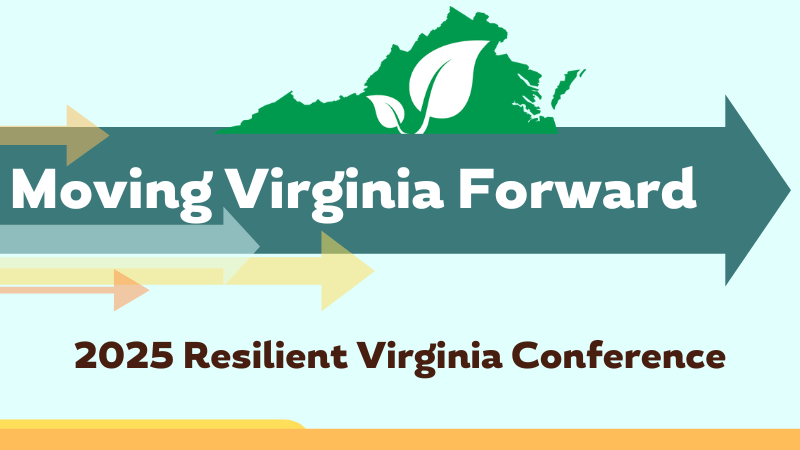
In a time of escalating climate risks and growing social and economic pressures, communities across Virginia are seeking innovative paths to resilience. The 2025 Resilient Virginia Conference, held July 23–24 at James Madison University in Harrisonburg, brought together over 200 leaders, experts, and advocates under the banner of “Moving Virginia Forward.” Hosted by Resilient Virginia, this biennial gathering served as a catalyst for cross-sector collaboration, highlighting the urgent need—and collective capacity—to adapt, thrive, and lead in the face of change.
With an agenda spanning climate adaptation, sustainable infrastructure, economic resilience, and community health, the conference offered a dynamic mix of plenaries, workshops, and hands-on learning experiences. From state officials unveiling strategic plans to grassroots innovators sharing local success stories, the event underscored one key message: building a resilient Virginia requires all of us.
Resilient Virginia’s Vision for a Stronger Commonwealth
Founded with the mission to strengthen communities in the face of climate change, economic shifts, and social challenges, Resilient Virginia has become a central force in promoting resilience strategies across the Commonwealth. The organization works at the intersection of policy, innovation, and community action—bridging the gap between statewide goals and on-the-ground solutions.
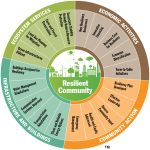 Through education, advocacy, and coalition-building, Resilient Virginia supports efforts to integrate resilience into every aspect of planning—from sustainable infrastructure and energy systems to workforce development and equitable adaptation. The biennial Resilient Virginia Conference is one of its signature initiatives, designed to unite public and private sector leaders, researchers, and nonprofits around shared strategies for long-term sustainability.
Through education, advocacy, and coalition-building, Resilient Virginia supports efforts to integrate resilience into every aspect of planning—from sustainable infrastructure and energy systems to workforce development and equitable adaptation. The biennial Resilient Virginia Conference is one of its signature initiatives, designed to unite public and private sector leaders, researchers, and nonprofits around shared strategies for long-term sustainability.
By curating diverse voices and real-world case studies, the organization emphasizes not just recovery from disruptions, but the ability to anticipate, adapt, and grow stronger in the face of ongoing change. As Virginia confronts rising sea levels, extreme weather events, and economic transitions, Resilient Virginia plays a vital role in equipping communities with the tools and knowledge they need to move forward—together.
Driving Dialogue and Action
The 2025 Resilient Virginia Conference featured a series of standout moments that framed the tone for collaboration, innovation, and urgent climate action.
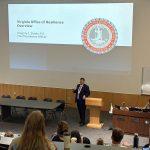 The event opened with a powerful plenary address from Greg Steele, Virginia’s newly appointed Chief Resilience Officer. Chief Steele laid out the Commonwealth’s strategic resilience roadmap, emphasizing the integration of climate adaptation into infrastructure investments, land use planning, and community preparedness. His remarks signaled a strong commitment from the state’s top leadership to move beyond planning and into implementation.
The event opened with a powerful plenary address from Greg Steele, Virginia’s newly appointed Chief Resilience Officer. Chief Steele laid out the Commonwealth’s strategic resilience roadmap, emphasizing the integration of climate adaptation into infrastructure investments, land use planning, and community preparedness. His remarks signaled a strong commitment from the state’s top leadership to move beyond planning and into implementation.
 One of the most memorable highlights came from Jennifer Watson, Founder and CEO of Watson World Wide, who delivered the keynote address. Watson spoke passionately about “resilience from the inside out,” introducing a human-centered resilience framework aimed at combating burnout and fostering sustained leadership in the face of ongoing environmental and social challenges. Her message resonated deeply with attendees navigating the long-term demands of resilience work.
One of the most memorable highlights came from Jennifer Watson, Founder and CEO of Watson World Wide, who delivered the keynote address. Watson spoke passionately about “resilience from the inside out,” introducing a human-centered resilience framework aimed at combating burnout and fostering sustained leadership in the face of ongoing environmental and social challenges. Her message resonated deeply with attendees navigating the long-term demands of resilience work.
Throughout the two-day event, attendees engaged in breakout sessions and interactive panels exploring topics such as:
- Equitable community resilience planning
- Climate-smart infrastructure and funding mechanisms
- Nature-based solutions and regenerative land use
- Public health and environmental justice intersections
The poster session brought additional energy, with presenters showcasing local projects—from student-led sustainability research to municipal climate adaptation initiatives—demonstrating the innovation bubbling up across Virginia.
Combined, these key moments emphasized a recurring theme: resilience is not just about bouncing back. It’s about building forward, with inclusivity, science, and long-term sustainability at the core
Turning Ideas Into Impact
One of the defining features of the 2025 Resilient Virginia Conference was its clear focus on actionable innovation. Rather than offering abstract theory or siloed expertise, the event delivered real-world strategies that attendees could adapt and apply in their own communities. A strong emphasis was placed on interdisciplinary collaboration, equity, and scalability—ensuring that resilience planning benefits all Virginians, especially those most vulnerable to climate and economic disruptions.
Key lessons and innovations included:
- Climate-Smart Infrastructure: Multiple sessions explored how municipalities can integrate resilience into infrastructure planning—through green stormwater systems, energy-efficient building standards, and regional transportation solutions that account for both climate risk and equity.
- Nature-Based Solutions: Presenters from local governments and nonprofits showcased how wetlands restoration, urban forestry, and regenerative agriculture can reduce climate impacts while enhancing biodiversity and community health.
- Equity as a Foundation: Across sessions, there was a recurring message that resilience must be inclusive. Several panelists shared frameworks for embedding racial and economic equity into resilience planning—from community-driven design processes to equitable funding distribution and workforce development.
- Cross-Sector Partnerships: Innovative collaborations between universities, local governments, and private industry were highlighted as key accelerators of resilience. JMU’s CASE (Center for the Advancement of Sustainable Energy), Visionary Sponsor of the conference, was featured as a prime example of how academic institutions can serve as living labs for sustainable development.
- Data and Decision-Making: Several workshops introduced tools for scenario planning, GIS-based vulnerability mapping, and metrics that help communities prioritize investments with long-term impact in mind.
Collectively, these takeaways reinforced a central truth: resilience is not one-size-fits-all. It must be grounded in local realities, informed by science, and shaped by those who live the outcomes. The 2025 conference succeeded in advancing a shared understanding that innovation without inclusion is incomplete—and resilience without action is just rhetoric.
Learning Beyond the Lecture
What set the 2025 Resilient Virginia Conference apart from traditional gatherings was its immersive, hands-on approach to learning. Rather than limiting engagement to panels and presentations, the event encouraged attendees to experience resilience in action—through interactive exhibits, live demonstrations, and campus tours that connected theory to tangible practice.
One of the most popular features was the “Science on a Sphere” exhibit, a dynamic visualization tool hosted by James Madison University that projected real-time planetary data onto a glowing globe. Participants could view simulations of sea level rise, weather patterns, and carbon emissions, turning abstract climate data into accessible, visual stories.
The “Robot Petting Zoo” brought STEM education to life with an exciting, hands-on demonstration from student teams in the FIRST Chesapeake Robotics League. Far more than just a robotics showcase, this mentor-based program emphasizes engineering, programming, problem-solving, and teamwork. Students presented their competition-ready robots, walked attendees through design choices and technical functionality, and answered questions about their process. The interactive format invited meaningful dialogue between students and conference participants, highlighting how youth-led innovation and mentorship are shaping the next generation of resilient thinkers and doers.
In addition, the Environmental Stewardship Tour showcased JMU’s commitment to ecosystem services and pollinator habitat conservation. Led by campus staff, the tour provided insight into how even small-scale natural systems can enhance biodiversity, reduce heat, and improve community well-being.
These experiences didn’t just educate—they inspired. By encouraging direct interaction with tools, technologies, and sustainable environments, the conference created memorable moments that deepened understanding and empowered attendees to bring similar ideas back to their own communities.
From Conference Room to Community Impact
The 2025 Resilient Virginia Conference wasn’t designed to be a one-time event—it was a launchpad for continued action across sectors and communities. Organizers emphasized the importance of translating insights into implementation, and the conference offered several clear calls-to-action for attendees, partners, and the broader public.
🔹 Get Involved Locally
From climate-smart zoning to green infrastructure grants, the tools of resilience are often most effective when driven at the local level. Attendees were encouraged to engage with municipal planning efforts, advocate for sustainable policies, and build partnerships across sectors within their own communities.
🔹 Join the Network
Resilient Virginia gifted attendees with a one-year Resilient Virginia Membership. Membership offers access to exclusive resources, early event registration, and a space to collaborate with others committed to long-term resilience.
🔹 Submit and Share Work
The call for proposals, posters, and case studies helped spotlight homegrown solutions from all corners of Virginia. Organizers urged participants to continue sharing their success stories, tools, and frameworks through future events and Resilient Virginia’s year-round programming.
🔹 Support and Sponsor
Local governments, nonprofits, and private sector partners were offered avenues to sponsor or exhibit at future conferences and resilience roundtables—ensuring the financial sustainability of these collaborative spaces.
🔹 Keep the Momentum Going
As communities across the Commonwealth face increasing climate risks, equity challenges, and economic transitions, the need for bold, inclusive resilience strategies has never been greater. The conference encouraged attendees to take what they learned back home—not just as information, but as fuel for action.
Looking Ahead: Next Steps for Resilient Virginia
As the energy from the 2025 Resilient Virginia Conference continues to ripple outward, Resilient Virginia is shifting focus toward sustained impact—amplifying local leadership, deepening technical support, and advancing its vision through the “Be Resilient, Virginia” ethos: a call to action for every community, organization, and individual across the Commonwealth.
1. Extending the Conference Momentum
 The conversation isn’t over. Due to an overwhelming number of high-quality and diverse presentation proposals, Resilient Virginia made the unprecedented decision to accept all applicants to present at the 2025 conference. While this inclusive approach enriched the program with a wide range of voices and topics, it also led to significant session overlap, making it impossible for attendees to experience every session they were interested in. In response, Resilient Virginia is now planning a series of post-conference sessions that will revisit the most in-demand topics—guided by feedback collected through a survey sent to attendees. This effort reflects the organization’s commitment to accessibility, learning continuity, and keeping the conversation going well beyond the two-day event.
The conversation isn’t over. Due to an overwhelming number of high-quality and diverse presentation proposals, Resilient Virginia made the unprecedented decision to accept all applicants to present at the 2025 conference. While this inclusive approach enriched the program with a wide range of voices and topics, it also led to significant session overlap, making it impossible for attendees to experience every session they were interested in. In response, Resilient Virginia is now planning a series of post-conference sessions that will revisit the most in-demand topics—guided by feedback collected through a survey sent to attendees. This effort reflects the organization’s commitment to accessibility, learning continuity, and keeping the conversation going well beyond the two-day event.
2. Rural Regional Resilience Roadmap for Central and Southwest Virginia
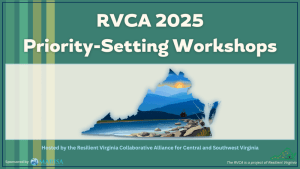
This spring marked the launch of the Resilient Virginia Collaborative Alliance (RVCA) priority-setting workshops, bringing together regional stakeholders in Central and Southwest Virginia to crystallize local resilience priorities and co-create a Rural Regional Resilience Roadmap. These workshops, spread across in-person and virtual sessions through late 2025, are the first steps in ensuring the voices of rural and underserved communities help shape strategic resilience efforts.
3. Be Resilient, Virginia: A Statewide Call to Action
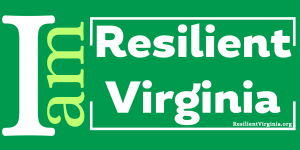 “Be Resilient, Virginia” is Resilient Virginia’s answer to a critical challenge: the need for a shared language, accessible knowledge, and cross-sector coordination around resilience across the Commonwealth. Designed as an interactive and resource-rich platform, the initiative will serve as a centralized hub for community members and professionals across all sectors—public, private, nonprofit, and academic—to find and share information about resilience efforts statewide. From current grant opportunities and active projects to key players and best practices, the Be Resilient, Virginia website aims to amplify collaboration, streamline access to resources, and accelerate planning and action at every level. By providing a common foundation of understanding, this initiative will help ensure that resilience in Virginia is not just reactive—but strategic, inclusive, and forward-moving.
“Be Resilient, Virginia” is Resilient Virginia’s answer to a critical challenge: the need for a shared language, accessible knowledge, and cross-sector coordination around resilience across the Commonwealth. Designed as an interactive and resource-rich platform, the initiative will serve as a centralized hub for community members and professionals across all sectors—public, private, nonprofit, and academic—to find and share information about resilience efforts statewide. From current grant opportunities and active projects to key players and best practices, the Be Resilient, Virginia website aims to amplify collaboration, streamline access to resources, and accelerate planning and action at every level. By providing a common foundation of understanding, this initiative will help ensure that resilience in Virginia is not just reactive—but strategic, inclusive, and forward-moving.
Conclusion
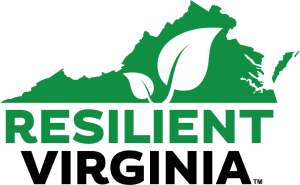 The 2025 Resilient Virginia Conference made one thing clear: resilience is not a destination—it’s a collective journey powered by knowledge, collaboration, and action. As Resilient Virginia continues to expand its reach through post-conference programming, regional roadmaps, and the launch of Be Resilient, Virginia, the organization is laying the groundwork for a more connected, informed, and prepared Commonwealth. Whether you’re a policymaker, planner, educator, or engaged resident, the path forward is clear—and it starts with showing up, speaking out, and working together to build a future where all Virginians can thrive.
The 2025 Resilient Virginia Conference made one thing clear: resilience is not a destination—it’s a collective journey powered by knowledge, collaboration, and action. As Resilient Virginia continues to expand its reach through post-conference programming, regional roadmaps, and the launch of Be Resilient, Virginia, the organization is laying the groundwork for a more connected, informed, and prepared Commonwealth. Whether you’re a policymaker, planner, educator, or engaged resident, the path forward is clear—and it starts with showing up, speaking out, and working together to build a future where all Virginians can thrive.
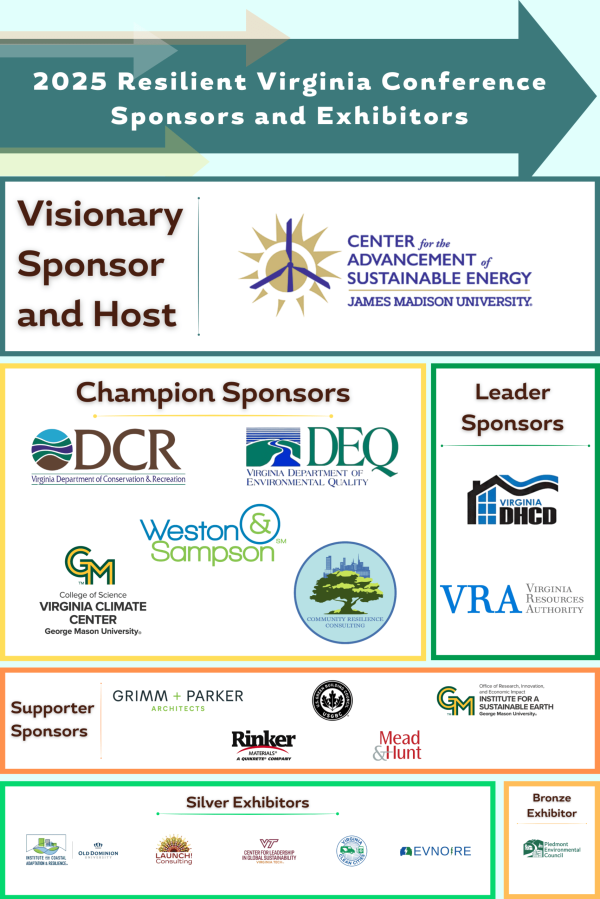
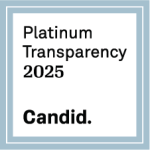 Resilient Virginia is a 501(c)(3) nonprofit organization focused on accelerating resiliency planning in communities across the Commonwealth.
Resilient Virginia is a 501(c)(3) nonprofit organization focused on accelerating resiliency planning in communities across the Commonwealth.




